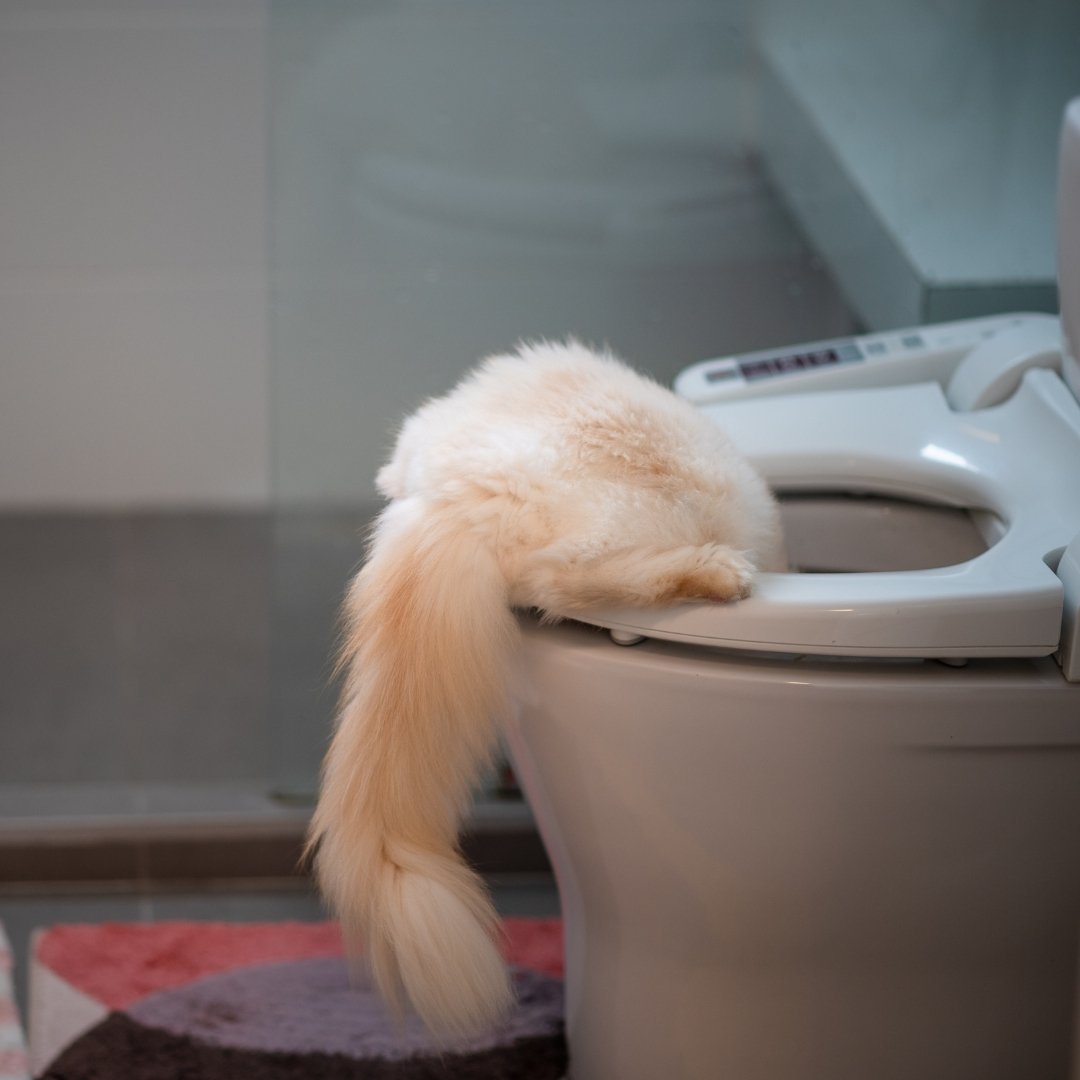Potential Issues of Flushing Cat Poop Down Your Toilet - Protect Your Pipes
Potential Issues of Flushing Cat Poop Down Your Toilet - Protect Your Pipes
Blog Article
We have unearthed this article on How to Dispose of Cat Poop and Litter Without Plastic Bags down the page on the web and concluded it made good sense to write about it with you here.

Introduction
As pet cat proprietors, it's essential to be mindful of exactly how we throw away our feline friends' waste. While it may seem convenient to purge cat poop down the commode, this practice can have harmful repercussions for both the environment and human health.
Ecological Impact
Purging cat poop introduces damaging pathogens and parasites right into the water supply, posing a significant threat to marine ecological communities. These contaminants can adversely influence marine life and compromise water quality.
Health Risks
Along with ecological concerns, purging pet cat waste can also present wellness threats to humans. Pet cat feces may have Toxoplasma gondii, a parasite that can trigger toxoplasmosis-- a potentially severe ailment, specifically for pregnant females and individuals with weakened immune systems.
Alternatives to Flushing
Fortunately, there are more secure and much more accountable ways to deal with pet cat poop. Take into consideration the adhering to choices:
1. Scoop and Dispose in Trash
One of the most common approach of throwing away cat poop is to scoop it right into a biodegradable bag and toss it in the trash. Make sure to use a dedicated clutter scoop and get rid of the waste immediately.
2. Usage Biodegradable Litter
Opt for eco-friendly cat trash made from materials such as corn or wheat. These trashes are eco-friendly and can be securely gotten rid of in the garbage.
3. Hide in the Yard
If you have a backyard, think about hiding cat waste in a marked area away from veggie gardens and water resources. Make sure to dig deep sufficient to avoid contamination of groundwater.
4. Mount a Pet Waste Disposal System
Purchase an animal garbage disposal system particularly created for pet cat waste. These systems make use of enzymes to break down the waste, decreasing smell and environmental impact.
Conclusion
Liable pet possession extends beyond giving food and sanctuary-- it additionally entails appropriate waste administration. By refraining from purging pet cat poop down the toilet and going with alternate disposal approaches, we can lessen our ecological footprint and safeguard human wellness.
Why You Should Never Flush Cat Poop Down the Toilet
A rose by any other name might smell as sweet, but not all poop is created equal. Toilets, and our sewage systems, are designed for human excrement, not animal waste. It might seem like it couldn’t hurt to toss cat feces into the loo, but it’s not a good idea to flush cat poop in the toilet.
First and foremost, assuming your cat uses a litter box, any waste is going to have litter on it. And even the smallest amount of litter can wreak havoc on plumbing.
Over time, small amounts build up, filling up your septic system. Most litter sold today is clumping; it is made from a type of clay that hardens when it gets wet. Ever tried to scrape old clumps from the bottom of a litter box? You know just how cement-hard it can get!
Now imagine just a small clump of that stuck in your pipes. A simple de-clogger like Drano isn’t going to cut it. And that means it’s going to cost you big time to fix it.
Parasitic Contamination
Believe it or not, your healthy kitty may be harboring a nasty parasite. Only cats excrete Toxoplasma in their feces. Yet it rarely causes serious health issues in the cats that are infected. Most people will be fine too if infected. Only pregnant women and people with compromised immune systems are at risk. (If you’ve ever heard how women who are expecting are excused from litter cleaning duty, Toxoplasma is why.)
But other animals may have a problem if infected with the parasite. And human water treatment systems aren’t designed to handle it. As a result, the systems don’t remove the parasite before discharging wastewater into local waterways. Fish, shellfish, and other marine life — otters in particular — are susceptible to toxoplasma. If exposed, most will end up with brain damage and many will die.
Depending on the species of fish, they may end up on someone’s fish hook and, ultimately on someone’s dinner plate. If that someone has a chronic illness, they’re at risk.
Skip the Toilet Training
We know there are folks out there who like to toilet train their cats. And we give them props, it takes a lot of work. But thanks to the toxoplasma, it’s not a good idea.

We were made aware of that write-up on How to Dispose of Cat Poop and Litter Without Plastic Bags from someone on another web page. Sharing is nice. Who knows, you may be helping someone out. Bless you for your time. Visit us again soon.
Contact Us Report this page